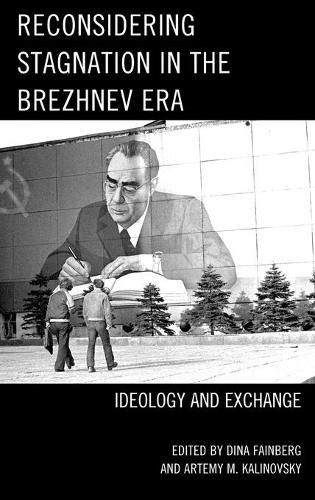Readings Newsletter
Become a Readings Member to make your shopping experience even easier.
Sign in or sign up for free!
You’re not far away from qualifying for FREE standard shipping within Australia
You’ve qualified for FREE standard shipping within Australia
The cart is loading…






This volume contributes to a growing reevaluation of the Brezhnev era, helping to shape a new historiography that gives us a much richer and more nuanced picture of the time period than the stagnation paradigm usually assigned to the era. The essays provide a multifaceted prism that reveals a dynamic society with a political and intellectual class that remained committed to the ideological foundations of the state, recognized the challenges that the system faced, and embarked on a creative search for solutions. The chapters focus on developments in politics, society, and culture, as well as the state’s attempts to lead and initiate change, which are mostly glossed over in the stagnation narrative. The volume challenges the assumption that the period as a whole was characterized by rampant cynicism and a decline of faith in the socialist creed and instead points to the persistence of popular engagement with the socialist ideology and the power it continued to wield within the Soviet Union.
$9.00 standard shipping within Australia
FREE standard shipping within Australia for orders over $100.00
Express & International shipping calculated at checkout
This volume contributes to a growing reevaluation of the Brezhnev era, helping to shape a new historiography that gives us a much richer and more nuanced picture of the time period than the stagnation paradigm usually assigned to the era. The essays provide a multifaceted prism that reveals a dynamic society with a political and intellectual class that remained committed to the ideological foundations of the state, recognized the challenges that the system faced, and embarked on a creative search for solutions. The chapters focus on developments in politics, society, and culture, as well as the state’s attempts to lead and initiate change, which are mostly glossed over in the stagnation narrative. The volume challenges the assumption that the period as a whole was characterized by rampant cynicism and a decline of faith in the socialist creed and instead points to the persistence of popular engagement with the socialist ideology and the power it continued to wield within the Soviet Union.